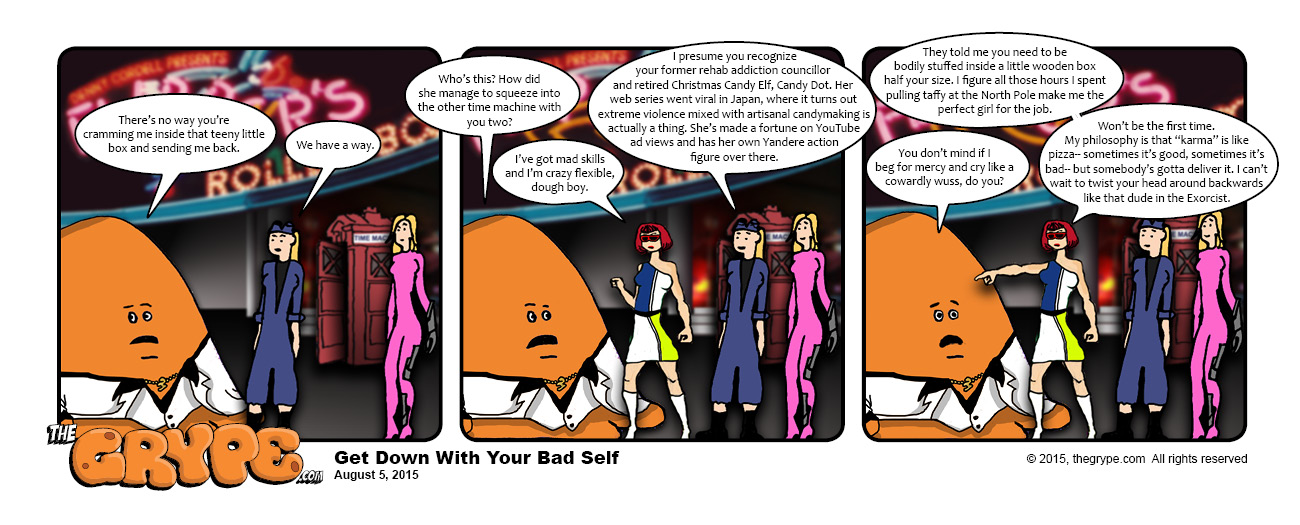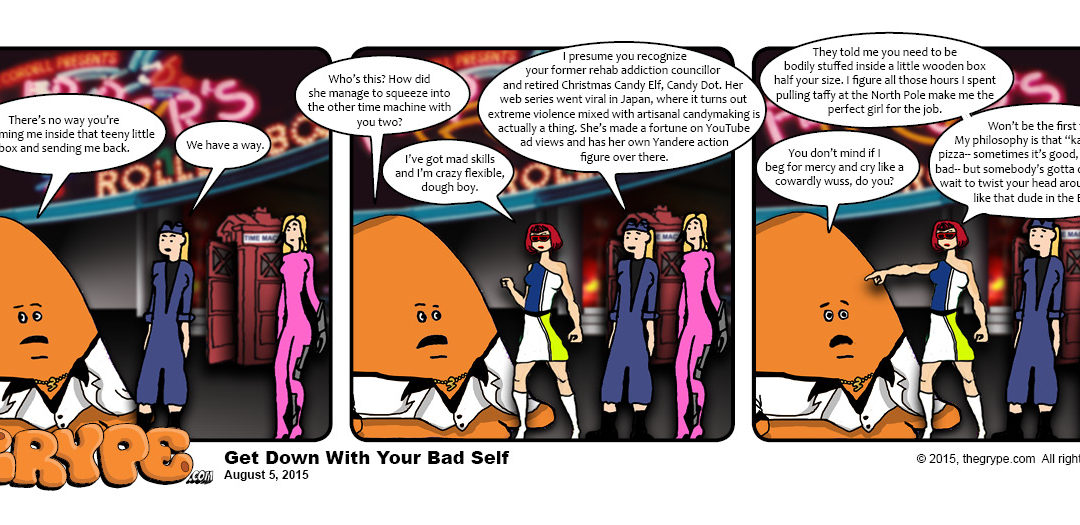 While all publicly practicing artists are subject to the freely-given opinions of others regarding the quality and sensitivity of their work— the vox populi, and the collective voice of our audience and the market— I find myself instinctively recoiling when anyone appoints himself or herself the moral watch dog of a victimized group and purports to express outrage on their behalf. And then proceeds to attack an artist for the supposed insensitivity of his or her work because some members of that group don’t like it or disagree with it.
While all publicly practicing artists are subject to the freely-given opinions of others regarding the quality and sensitivity of their work— the vox populi, and the collective voice of our audience and the market— I find myself instinctively recoiling when anyone appoints himself or herself the moral watch dog of a victimized group and purports to express outrage on their behalf. And then proceeds to attack an artist for the supposed insensitivity of his or her work because some members of that group don’t like it or disagree with it.
I recall a period in the early 2000’s when writer/director Joss Whedon, at that time the darling of the LGBT community for his then-groundbreaking open inclusion of homosexuality on his TV show Buffy the Vampire Slayer, came under extremely vicious (I’m talking HORRIFIC, constant, threatening and harassing) criticism and online attack by many in that selfsame community when— in a TV show where EVERYBODY was constantly under attack by the forces of darkness and multiple characters were killed in the crossfire— one of his lesbian characters lost her life in a similar manner.
The argument was that Whedon had no right to do harm to that (fictional) character, and that all such characters (LGBTQQIA) must be treated differently in fiction than, presumably, straight cisgendered and cissexual characters, because there was a stereotype of victimization that must always be defied— even at the expense of story and plot.
When I say he came under “attack” that’s exactly what I mean. For years, online sites existed whose sole purpose was to bash him in the most heinous manner imaginable. I’m literally talking DEATH THREATS.
I remember it made a huge impression on me at the time. I was then working on a novel in which one of the primary characters was LGBT. And I was so freaked out and appalled at what Whedon was going through that eventually I rewrote that character to change her from a gay female into a straight male, since some bad things were plotted in that character’s future and I didn’t want to expose myself to accusations of homophobia or worse when those bad things started to happen. I regret doing it, because I loved that character as originally written, and suspected other readers would also love her and empathize with her.
These days, when I send a piece of artwork out into the world, I expect it to be experienced by the end user and hopefully enjoyed— even critiqued. I have a pretty thick skin as far as criticism goes, provided it’s not purposely mean-spirited or insulting. What I DON’T expect is for it to be returned to me in some manner or context, marked up (either proverbially or literally) in red pencil. I’m not sending it out to be edited or revised according to the particular tastes of the individual user or recipient— I’m sending it out “as is.” Like it, or don’t like it, according to your personal viewpoint… but don’t attempt to appropriate it and reshape it according to your whims of fancy. That’s not why it exists. Yes, I want to share it with you and hope you enjoy it, but no, it is NOT now your personal plaything for you to disassemble and ruin.
Since when have fans become so ridiculously self-important that they believe it’s their right to edit or rewrite the art that comes their way? If they possessed the talent and wherewithal to do so, one would expect them to become professional artists, writers, or editors themselves. But the new internet-fueled era of armchair expertise, coupled with the internet-driven “we are all creators” movement, has created a new self-absorbed bourgeois consumer mindset full of people who believe it’s their inalienable right to adjust the artwork of their favorite artists to better assuage their personal, subjective preferences.
Look: if you don’t like the art, don’t patronize that art. But keep your goddamn hands off it. Don’t argue with its creator about what it means, or why, or what it’s trying to say. You are certainly welcome to your own interpretation of it— as an artist myself, I’m quite pleased you care enough about it to do so— but your interpretation of it can never have more validity than my own. It’s a child of my imagination. Don’t try to assume control of it and tailor it after the fact to better suit your own personal fetishes. Or if you must do so, keep it to yourself, or share it among your friends… but don’t wave the alternative you’ve built in my face as the superior version, as if to goad me into changing my original to match it. That’s not only rude, it’s intellectual property theft. You’ve taken the product of my hard work and hard-won skill and have used it as a source for your own, derivative work— one wherein I have already done all the real heavy lifting and building— after which you just wandered in and started rearranging the furniture. Because you felt you could.
You can’t.
I’m not here to speak for all other artists, only myself: but if I want my work critiqued or line edited, I will submit it to skilled editors whom I know for their help. But if that’s not how a work of art comes to you, don’t assume that there’s a blanket invitation for you to indulge your creative side by changing that work of art, or by suggesting changes to the original artist. I will feel duly honored if my work inspires you to produce your own work of art; but the two works, mine and yours, are not the same, seeing as they come from different sources. If you find my work offensive, don’t read it. I won’t mind. But don’t rewrite it in an effort to censor it, or appoint yourself the great moral watchdog of my work, or misinterpret it into a straw man upon which to latch your own personal neurotic hang-ups.
My art, my rules.

